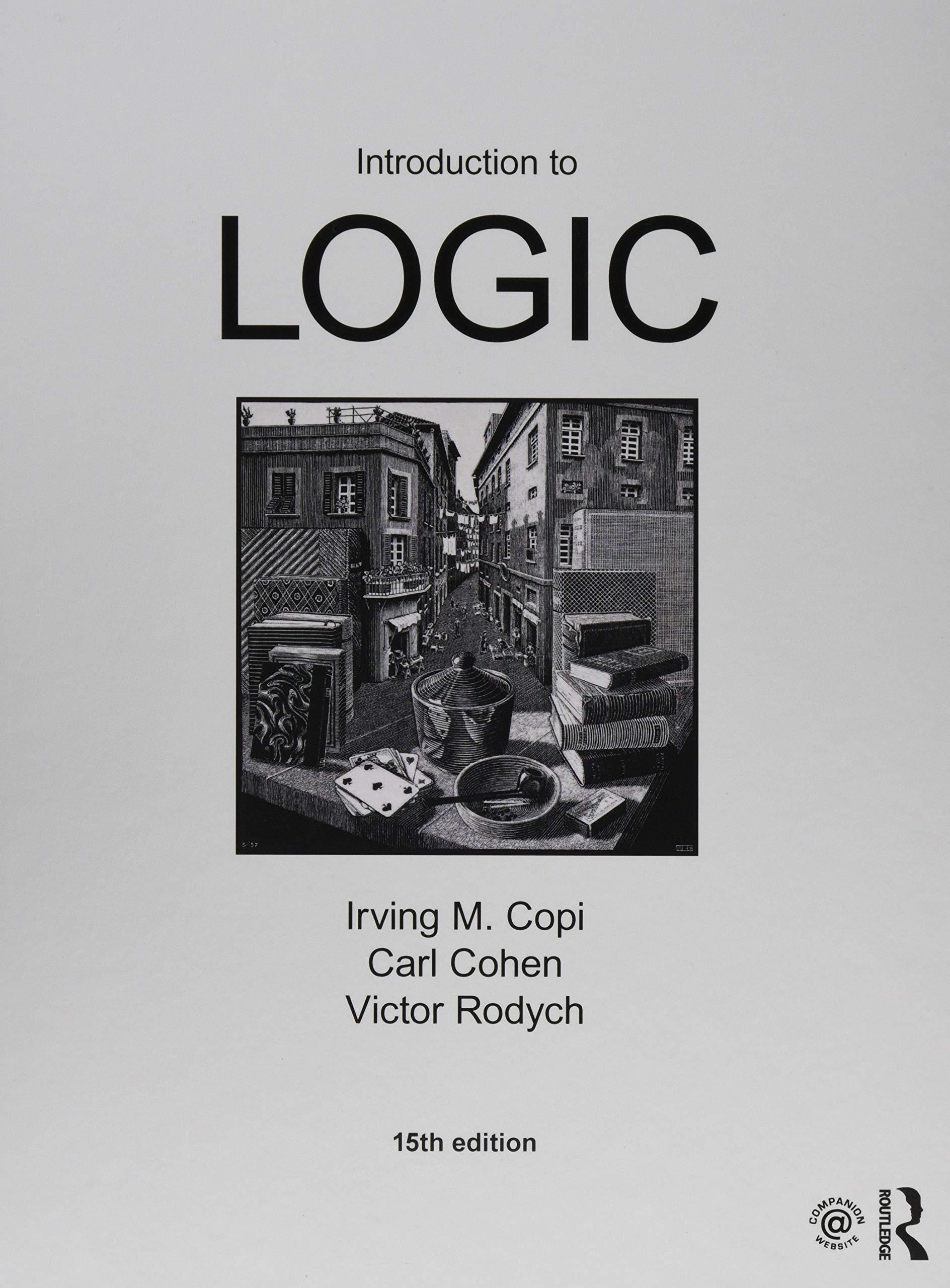Each of the following arguments in English may be similarly translated, and for each, a formal proof
Question:
Each of the following arguments in English may be similarly translated, and for each, a formal proof of validity (using only the nine elementary valid argument forms as rules of inference) may be constructed. These proofs vary in length, some requiring a sequence of thirteen statements (including the premises) to complete the formal proofs. The suggested abbreviations should be used for the sake of clarity. Bear in mind that, as one proceeds to produce a formal proof of an argument presented in a natural language, it is of the utmost importance that the translation into symbolic notation of the statements appearing discursively in the argument be perfectly accurate ; if it is not, one will be working with an argument that is different from the original one, and in that case any proof devised will be useless, being not applicable to the original argument.
If Jonas goes to the meeting, then a complete report will be made; but if Jonas does not go to the meeting, then a special election will be required. If a complete report is made, then an investigation will be launched. If Jonas’s going to the meeting implies that a complete report will be made, and the making of a complete report implies that an investigation will be launched, then either Jonas goes to the meeting and an investigation is launched or Jonas does not go to the meeting and no investigation is launched. If Jonas goes to the meeting and an investigation is launched, then some members will have to stand trial. But if Jonas does not go to the meeting and no investigation is launched, then the organization will disintegrate very rapidly.
Therefore either some members will have to stand trial or the organization will disintegrate very rapidly. ( J —Jonas goes to the meeting; R —A complete report is made; E —A special election is required; I —An investigation is launched; T —Some members have to stand trial; D —The organization disintegrates very rapidly.)
Step by Step Answer:

Introduction To Logic
ISBN: 9781138500860
15th Edition
Authors: Irving M. Copi, Carl Cohen, Victor Rodych





